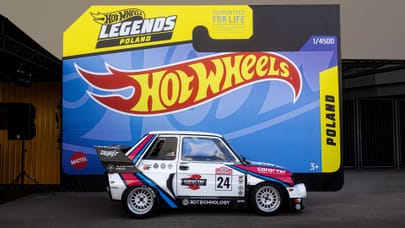
Progress report: 2023 Audi S3 Sportback vs 2001 Audi S3 (with MTM boost...)
Two premium hot hatches, 20 years apart. So what’s changed?

THESE TWO THINGS ARE NOT THE SAME

Correct and yet... not. If you want an example of technological evolution without dismantling expectation, then look no further than the Audi S3. The original appeared in 1999 and featured quattro all-wheel drive, a turbocharged four-cylinder and the kind of Goldilocks format that meant it could operate as a rapid, practical daily. That’s the subtle green one. The 2023 version, here in chirpy Miami blue, also has the same basics, but drive one immediately after the other and you’ll be surprised at just how little the overall vibe has changed in 24 years.
Advertisement - Page continues belowOK, BUT IS THAT A GOOD THING?

We think so. So yes, they do look different – but they’re still recognisably fraternal. The oldster is softer, more rounded, with modest 17-inch alloys. The new one is harder edged, gobbier and sits on 19s, but you can see where the styling has wandered up the timeline. And so it is with everything else. The green car is an original S3 with an MTM ECU tweak to the turbo 1.8 to give 250bhp, with a sweet revving delivery that requires a beat to get the little turbo up to speed. Zero to 62mph takes 6.8 seconds with a 1,420kg kerbweight, a light feeling 6spd manual punctuating the shifts.
SOUNDS BRILLIANT - BUT THE NEW ONE IS BETTER, RIGHT?

The modern one doesn’t need that breath to get going or change gear – modern turbos spool faster, deliver lower in the rev range and feel more insistent, and the 7spd paddleshift DSG doesn’t pause. The newer face also gets a 2.0-litre upgrade and 306bhp, though it’s moving 1,560kg. It does, however, feel appreciably more rapid when it knuckles down to a sub-five second 0–62mph run.
Advertisement - Page continues belowTHAT MAKES THEM SOUND QUITE DIFFERENT THOUGH?

The stats are a bit misleading really, because the old one doesn’t feel outclassed. Yes, the Haldex all-wheel-drive system is the first gen and is entirely reactive – you’ll only get up to 50 per cent action from the rears when the fronts have already started to spin – but it’s got the grip if you’ve got the faith. The latest model gets a similar system in that it runs as front-wheel drive most of the time, but it’s got a second multi-plate clutch just in front of the rear diff. Traction getting loose? The car can thump 100 per cent of the available torque to the rear axle and vary it much more precisely.
BETTER, BUT NOT BETTER?

It’s a much more finessed and precise delivery – and one that doesn’t require quite so much commitment. But again, it’s grown-up, rather than a different kind of car. Both feel like S3s. Rapid, secure, without the fear you get with RS products. You can still plot the lineage with a ruler. Which is better? The modern version. Which is best? In this case, old school still has the character.
Trending this week
- Car Review
BMW 1 Series







